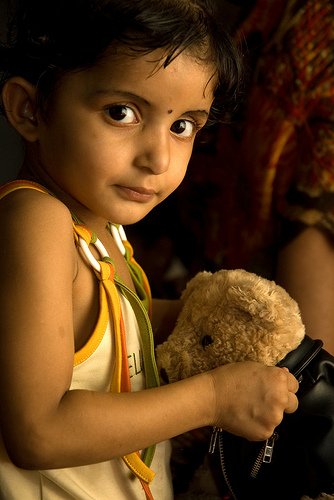
Female foeticide is a saddening problem in India. Infant girls are among the most vulnerable citizens of India. While many modern and educated families don’t really care about the sex of their children, rural families want boys. Girls are an unwelcome strain on the family finances for the dowry in their weddings, as well as incapable of physically standing up to the strain of labour intensive occupations like farming, which is the mainstay of India.
It is easy for us to sit in the cities and preach what should be, but to a poor, illiterate farmer (or stubborn orthodox family) it is the male child that matters. Whether it is for bringing in money as dowry, or staying in the home to care for parents in the old age, manage labour intensive occupations, carry on the family name, or just out of plain prejudice, but the fact remains that our words cannot change preferences of people.
It is extremely unethical to abort a child for being female. On the other hand, for a person without the understanding of ratios of males to females or even plain old fairness to their own progeny, it is something that is to be framed and worshipped, but not done.
I found the Indian government’s initiative toward adopting the unwanted girl children noteworthy. Here is something that can save some of those lives lost to orthodox preferences, but the one stumbling block in this that I see, is that very few people will be comfortable approaching someone to hand over their daughter and say that they don’t want her, even if it is true. This will be perceived as heartlessness, in a society where sin is not sin if it remains hidden from the world.
I read this article on how the ancient system of foundling wheels, where mothers could leave their babies in convents has been adopted by a hospital in Rome to help collect babies their mothers plan to abandon.
ROME, Feb. 27 — In the Middle Ages, new mothers in Rome could abandon their unwanted babies in a “foundling wheel” — a revolving wooden barrel lodged in a wall, often in a convent, that allowed women to deposit their offspring without being seen.
Now a Rome hospital, the Casilino Polyclinic, has introduced a technologically advanced version of the foundling wheel — not at all a wheel but very much like an A.T.M. booth. For the first time a new mother left her baby there on Saturday night, and on Monday the child, a boy about 3 months old, was doing well, said Dr. Piermichele Paolillo, who directs the neonatal unit at the hospital.
This is only a very small part of the article and I recommend all to read the whole thing.
This set me thinking. We have very strong plans in India to encourage adoption of female children to combat female foeticide. This would also enable parents who later had a change of heart to reclaim their daughters. A truly inspiring initiative. The government plans to adopt these girls in order to give them a life.
I remember thinking when this was announced about who would openly give up their girl children to orphanages. Surely, this itself would mean a social stigma, and the foeticide would only marginally be affected.
Could this system from ancient Rome be put to good use in this programme in India?
It would have several benifits. The anonimity would encourage people to use the facility without fearing social criticism, saving the lives of many unborn girls. The government would probably find larger support of its adoption scheme from rural organizations and people. The girls would get a life, rather than an abortion for fear of being saddled with a female child.
It would become far more easy to crack down on providers of illegal abortions, and providers who may be doing so under local pressure/demand would be able to advise their clients of this more acceptable alternative.
Based on records of dates of the child being left and DNA tests, parents who change their mind and want to claim their daughters would still be able to identify them.
I suspect, though I may be wrong, that the refusal of sex determination tests, with this option as the plan of action would allow the family to form an emotional bond with the unborn child rather than thinking of it as genetic currency, and perhaps, just perhaps, they would love her even after she was born, and would not want her to grow up an orphan.

